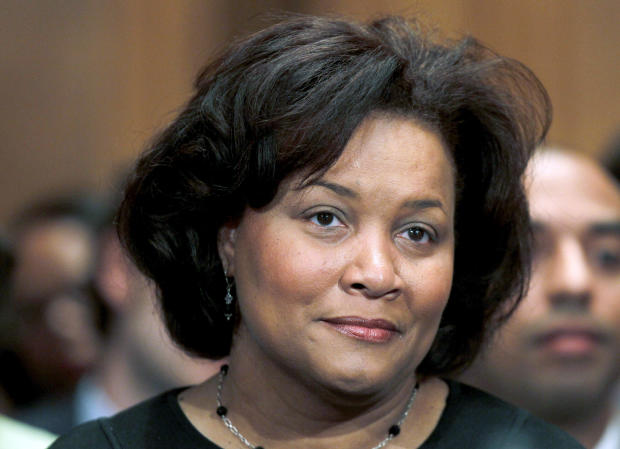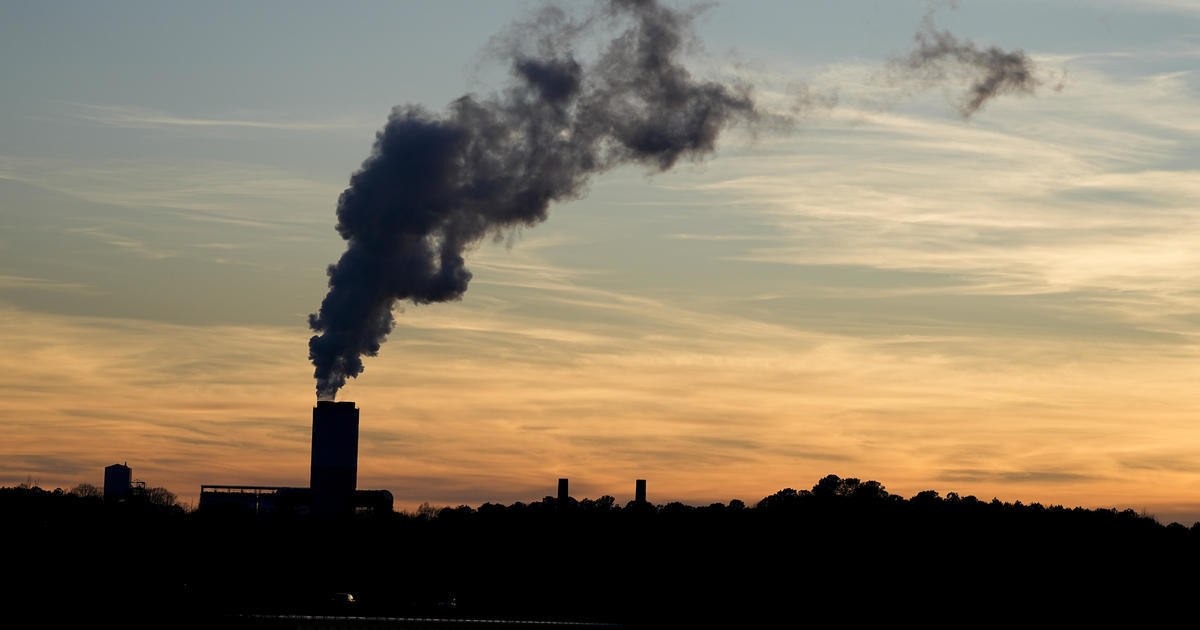Supreme Court search highlights calls for educational diversity on the bench
Washington — Move over, Harvard and Yale. With Justice Stephen Breyer's retirement opening a vacancy on the Supreme Court, there's a new push for President Biden to push aside the Ivy League and give alumni of public universities a chance.
Mr. Biden is poised to nominate the first Black woman to the nation's highest court, and if the Senate confirms his pick, it would mark the first time two African-American justices were on the court at the same time. Four women would also be on the bench simultaneously. Now, some on Capitol Hill are also urging the president to bring some educational diversity to the Supreme Court with his pick.
And with a bench filled with graduates of Harvard or Yale law schools — with Justice Amy Coney Barrett, a graduate of University of Notre Dame Law School, the lone exception — the public-school pedigree of U.S. District Judge J. Michelle Childs is being heralded as a plus-factor for her candidacy.
"I'd like to see the court have a lot more balance, some common sense on it," GOP Senator Lindsey Graham of South Carolina told "Face the Nation" last week. "Everybody doesn't have to be from Harvard, Yale. It's OK to go to a public university and get your law degree."
Democratic Congressman Jim Clyburn, the House's third-highest ranking member who helped secure Mr. Biden's pledge to nominate the first Black woman to the Supreme Court, also lauded Childs' educational background and the message her appointment would send to young Americans.
"It says to every little child up there growing up under moderate circumstances, needing the entire community help raise it, getting scholarships to go up to school because she couldn't afford to go otherwise, going to public schools because you didn't get an offer from one of the big private school, it says to them, you've got just as much of a chance to benefit from the greatness of this country as everybody else," Clyburn told "Face the Nation."
Democratic Congressman Al Green of Texas, too, said one does not have to be an Ivy League alum to sit on the high court: "The qualifications of a Supreme Court nominee should not be dependent on what university they attended, but more importantly, on who they are."
Childs, 55, attended the University of South Florida and the University of South Carolina Law School, and she would be the only justice who attended public universities, if Mr. Biden selects her for the Supreme Court and she is confirmed by the Senate.
A 2016 analysis of the educational backgrounds of Supreme Court members conducted by Jason Iuliano and Avery Stewart found that of the justices with law degrees, 30% graduated from Harvard, followed by 12% from Yale and 10% from Columbia. The nation's highest court has not been without a graduate of Harvard Law since 1881.
"There is something of value to having people with different backgrounds and life experiences sitting in a room discussing the case," Iuliano, a law professor at University of Utah, told CBS News. "You get nine people in a room who all have the same background, and they will look at it from the same vantage point and have similar approaches to it."
Through his picks to the federal judiciary, Mr. Biden has sought to address a gap in the legal professions represented on the bench, with 30% of his judicial nominees in 2021 having worked as public defenders, according to the Alliance for Justice, a liberal judicial advocacy organization.
The president also broke the record for the total number of public defenders nominated to the federal circuit courts, with six of his circuit court nominees having that experience. Seventy-three percent of Mr. Biden's nominees are women, and nearly 65% are people of color, according to the Alliance for Justice.
But the educational backgrounds of nominees often gets less attention, even as Iuliano and Stewart found that educational diversity across the federal bench was at an all-time low as of 2016, and a shrinking number of law schools claim a growing share of judgeships.
Of the 2,917 federal judges who served between 1789 and 2014 and graduated from law school, nearly 10% went to Harvard, while more than 4% went to Yale, the researchers found.
Iuliano attributed the trend toward less educational diversity, particularly among Supreme Court nominees, to the confirmation process, which has grown more bruising and politicized over the decades.
"Part of it is minimizing the different avenues the opposition can use to attack your nominee," he said. "No one ever came out and said you shouldn't have picked the Harvard or Yale grad because they're unfit for the bench."
But "you do lose a lot of folks who are extremely intelligent and qualified but don't have the same pedigree, and they're thrown out for that reason because you're going to give the opposition a line of attack," he said.
Minimizing the potential areas of attack could be even more of a crucial consideration for Mr. Biden and his eventual nominee given the razor-thin margins in the Senate, where Democrats and Republicans each hold 50 seats and Vice President Kamala Harris — a graduate of University of California Hastings College of the Law — casts tie-breaking votes.
"Given the split in the Senate at this point, anything that might lose a single vote could tank the process," Iuliano said. "Risk aversion seems to be a very central or important consideration at this point for who can get across the finish line."
Benjamin Barton, author of the forthcoming book "The Credentialed Court: Inside the Cloistered, Elite World of American Justice," said the focus on candidates with an Ivy League education has "hardened and crystallized" over time, with both Republican and Democratic presidents pulling from a pool of Supreme Court candidates with Ivy League degrees.
"This court is the most diverse in terms of gender and race ever, and with Biden's addition, that court will be the most diverse in terms of gender and race. We're making huge strides," Barton, a law professor at the University of Tennessee, said. "That being said, it's a weirdly non-representative court given the experiences these people have had. It's a tiny percentage of the population that's gone to Ivy League undergrad or law schools. It's most representative in gender and race, but least representative in terms of every other factor of their life experience."
The White House has confirmed Childs is among the women under consideration to succeed retiring Justice Stephen Breyer on the Supreme Court. She joins a list of more than a dozen candidates Mr. Biden is weighing, which includes Judge Ketanji Brown Jackson of the federal appeals court in Washington, and California Supreme Court Justice Leondra Kruger.
Jackson graduated from Harvard Law, while Kruger went to Yale Law.
White House officials have been tight-lipped about the selection process, though a memo sent Monday to lawmakers and outside groups stressed Mr. Biden "is choosing from among a wealth of accomplished and inspiring Black women with the strongest record, credentials, and abilities anyone could have for the highest court in our nation."
"It's long overdue that a Black woman serve on the Supreme Court, and there is bipartisan tradition for ensuring that the richness of our country is represented in its leadership and on the highest Court," the memo from the White House, obtained by CBS News, said.
Ed O'Keefe contributed to this report




